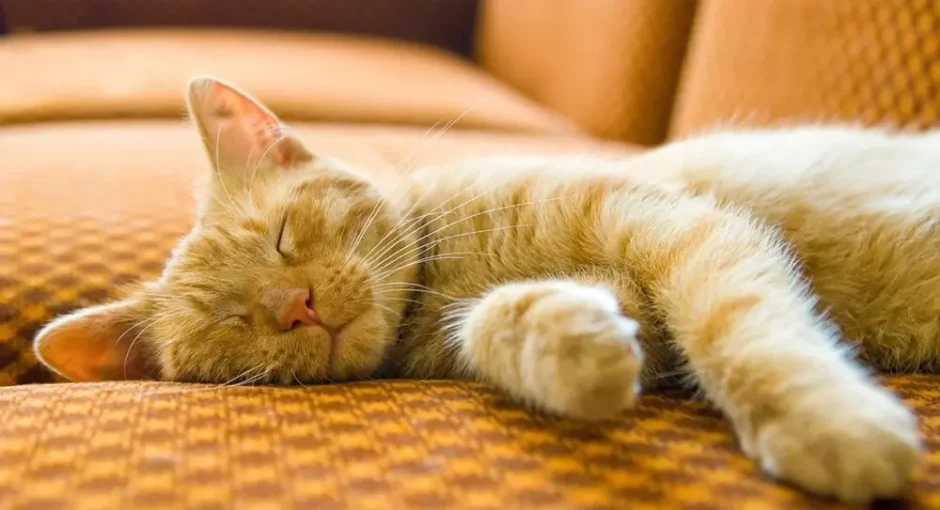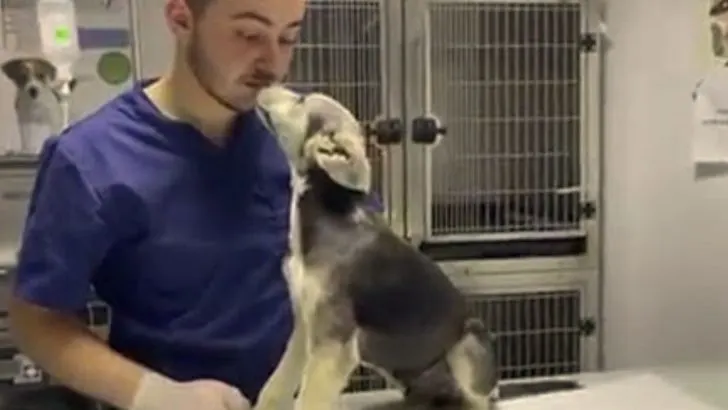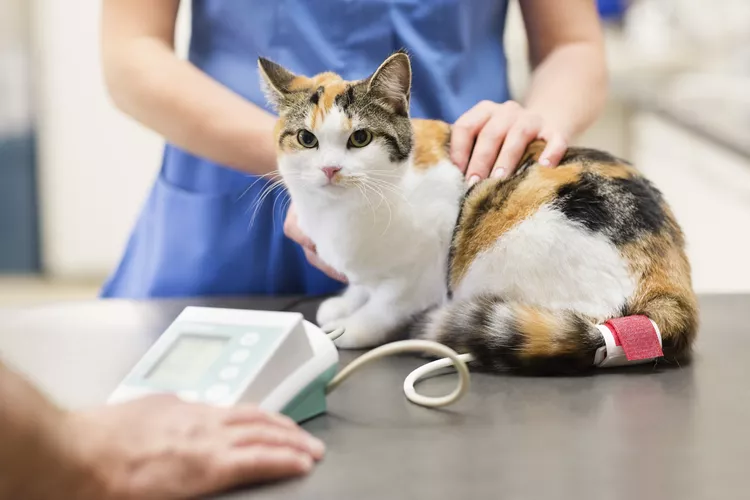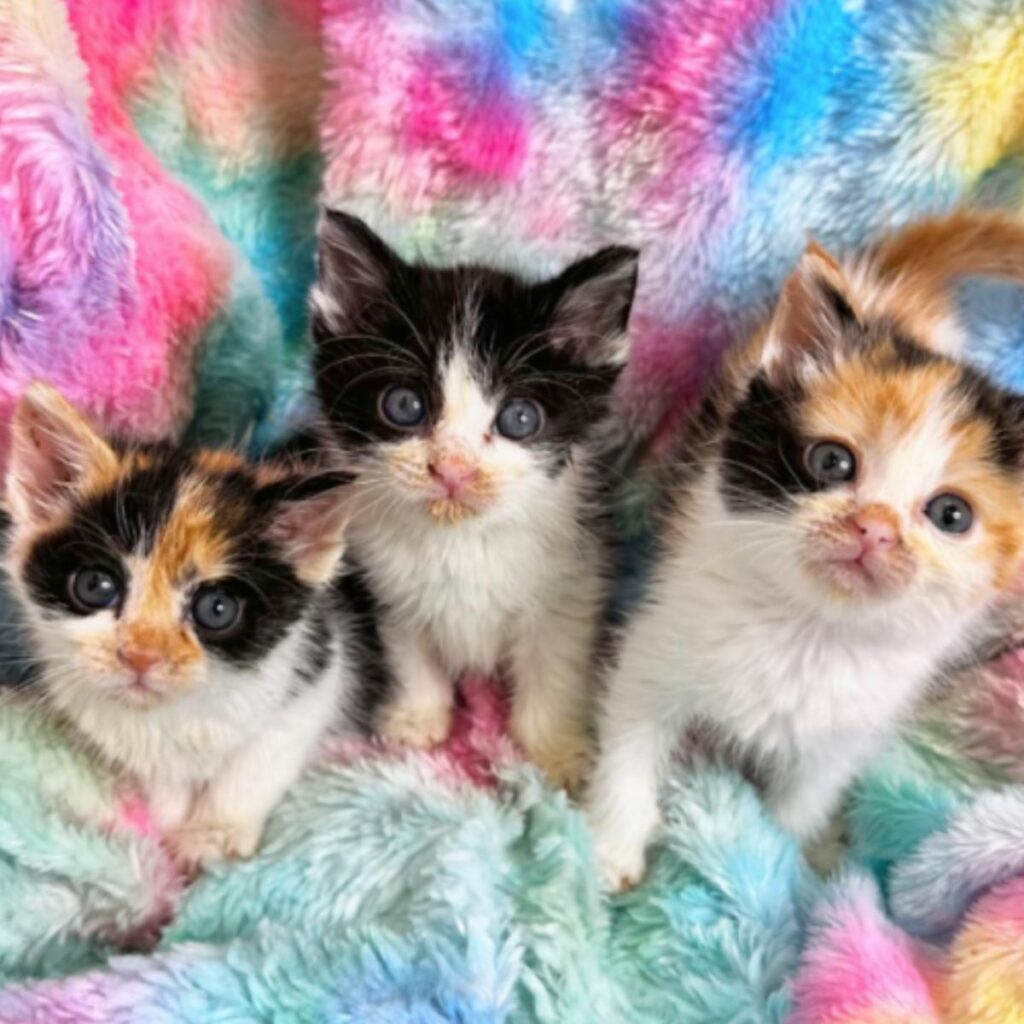Finding your cat has ditched your cozy bed for the less inviting laundry basket, or a pair of dirty pants can be a real heartbreaker.
I’ve been there, searching for answers when my furry companion decided to change their sleeping spot.
From stress to changes in the household, various reasons could explain this behavior.
Let’s begin by better understanding our feline friends and uncovering some of the reasons behind their sleeping decisions.
Read more: 15 Great Gift Ideas For Cat Lovers
Reasons Why Your Car Stopped Sleeping With You
In the quest to understand why my furry friend may have suddenly abandoned our nightly cuddles, I’ve unearthed some compelling reasons.
Let’s take a look at what might be causing this shift in behavior.
Stress
Stress isn’t just a human dilemma; our cats experience it, too.
Whether it’s a change in their environment, a new member in the household, or even a shift in their diet, stress affects cats in myriad ways.
One clear sign is their sleeping behavior. If my cat feels insecure or anxious, they might opt for a solitary sleeping spot over my bed.
It’s vital to monitor changes in their environment or routine that could be causing this stress.
Remember, understanding and patience are key to helping them adjust and possibly return to their usual sleeping habits.
Read more: Leaving Your Cat Alone: How Long Is Too Long?
Health Problems
Health issues can significantly impact a cat‘s comfort and mobility.
Conditions like arthritis or other painful ailments often develop silently, altering their preferred resting places.
If my cat has suddenly stopped jumping onto the bed, it could be a sign of discomfort or pain.
Observing their movement and consulting a vet can provide insights and help manage any health concerns, ensuring they remain as comfortable as possible.
Boredom
Surprisingly, boredom can also drive a cat to change their sleeping location. Cats need stimulation, both physically and mentally.
If they’ve grown too accustomed to their environment, including their sleeping spots, they might seek new places just to break the monotony.
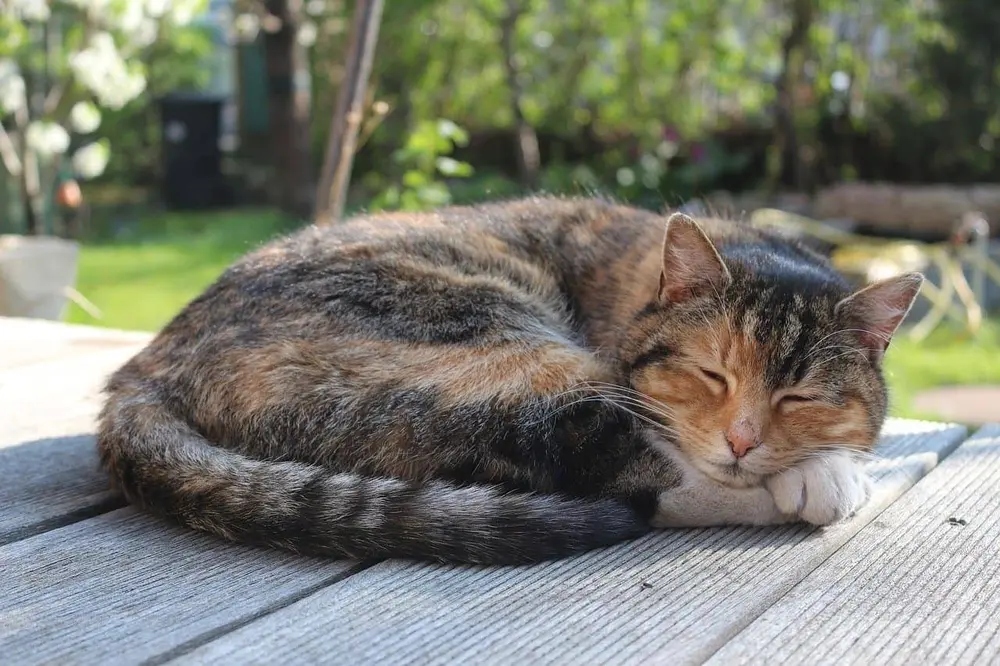
Ensuring there are plenty of toys, climbing structures, and even rotating sleeping areas can help keep things interesting for them.
You Snore Or Move In Bed
Finally, your nocturnal habits could be the culprit. As much as I’d like to think you are the perfect bed partner, your snoring or restless sleep could be disturbing my cat.
Cats are light sleepers and highly sensitive to noise and movement. If your tossing and turning or snoring disrupt their rest, they might prefer a quieter, more stable sleeping arrangement.
Respecting their need for a peaceful sleeping environment is crucial, even if it means sleeping apart.
Read more: Police Shoot & Kill Dog in Missouri, Owner Files Complaint
Your Sleeping Habits Are Not In Sync
Cats are known for their unique sleeping patterns. Unlike humans, who primarily sleep in one long stretch at night, cats are crepuscular. This means they’re most active during the twilight hours of dusk and dawn.
This is more prominent in kittens rather than adult cats where the sleeping habits tend to have a bit more of a routine.
So, sometimes while I’m trying to catch some Z’s, my cat is wired and ready to play or hunt. This mismatch in active hours can explain why your cat might not be as keen on sharing the bed with you anymore.
How To Solve This Problem?
When I first noticed my cat avoiding our shared snuggle sessions at night, I knew I had to find a way to bring back these precious moments.
My initial step was to observe any changes in my own routine that might have impacted my furry friend’s behavior.
To create a more inviting sleep environment, I experimented with different strategies.
Firstly, I made sure to keep my bedroom quiet and calm, turning it into a sanctuary that both my cat and I could enjoy.
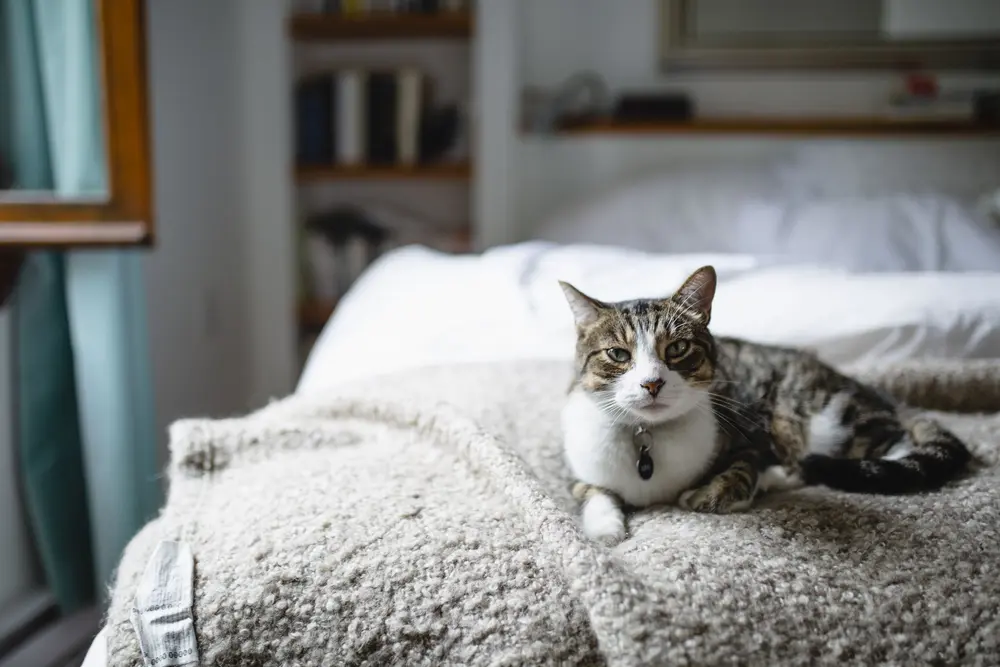
This meant no late-night TV watching or bringing work to bed.
Instead, I opted for soft bed linens and a warm blanket specifically for my cat at the foot of the bed (knowing how much they love soft textures).
Another thing is balancing my cat‘s sleep schedule with mine’s. Understanding that cats are crepuscular – most active during twilight hours – helped me adjust our routine.
I also incorporated play sessions in the early evening to align our schedules better, ensuring my cat was ready to wind down when I was.
This routine adjustment meant my cat was more inclined to join me when it was time to sleep, feeling both tired and content.
Another aspect I looked into was creating multiple cozy sleeping spots around the house. Cats love variety, and sometimes they just want a change of scenery.
By placing comfortable cat beds in different rooms, I gave my cat the option to choose where to rest, which surprisingly led them back to me more often than not.
Read more: Research Suggests Cats Possess Healing Powers

Elevate your pet’s comfort with our Love’s Cabin cat and dog bed, featuring a cozy donut cuddler shape and 25% more filling for ultimate support and warmth, all wrapped in high-quality, machine-washable fabric.
Certified by OEKO-TEX STANDARD 100, our bed ensures a healthy rest space, complete with a non-slip bottom for secure lounging.
Changes won’t happen overnight, but with consistent effort and understanding, solving the mystery of why my cat stopped sleeping with me turned into an opportunity to strengthen our bond.
Wrapping Up
I’ve learned that understanding and adapting to my cat‘s needs was crucial in inviting her back into my bed, and remaining to be her favorite human.
Making those small adjustments in our routine and ensuring she had a peaceful place to sleep made all the difference.
It wasn’t an overnight fix but rather a journey of paying attention to what she needed and how I could provide it.
Remember, every cat is unique, and patience is key. Don’t give up if your furry friend seems distant.
With some effort and understanding, you might just find them curled up beside you again, purring away into the night.
Read more: How Much Do Cat Vaccinations Cost? Updated Cat & Kitten Vaccine Pricing for 2024
